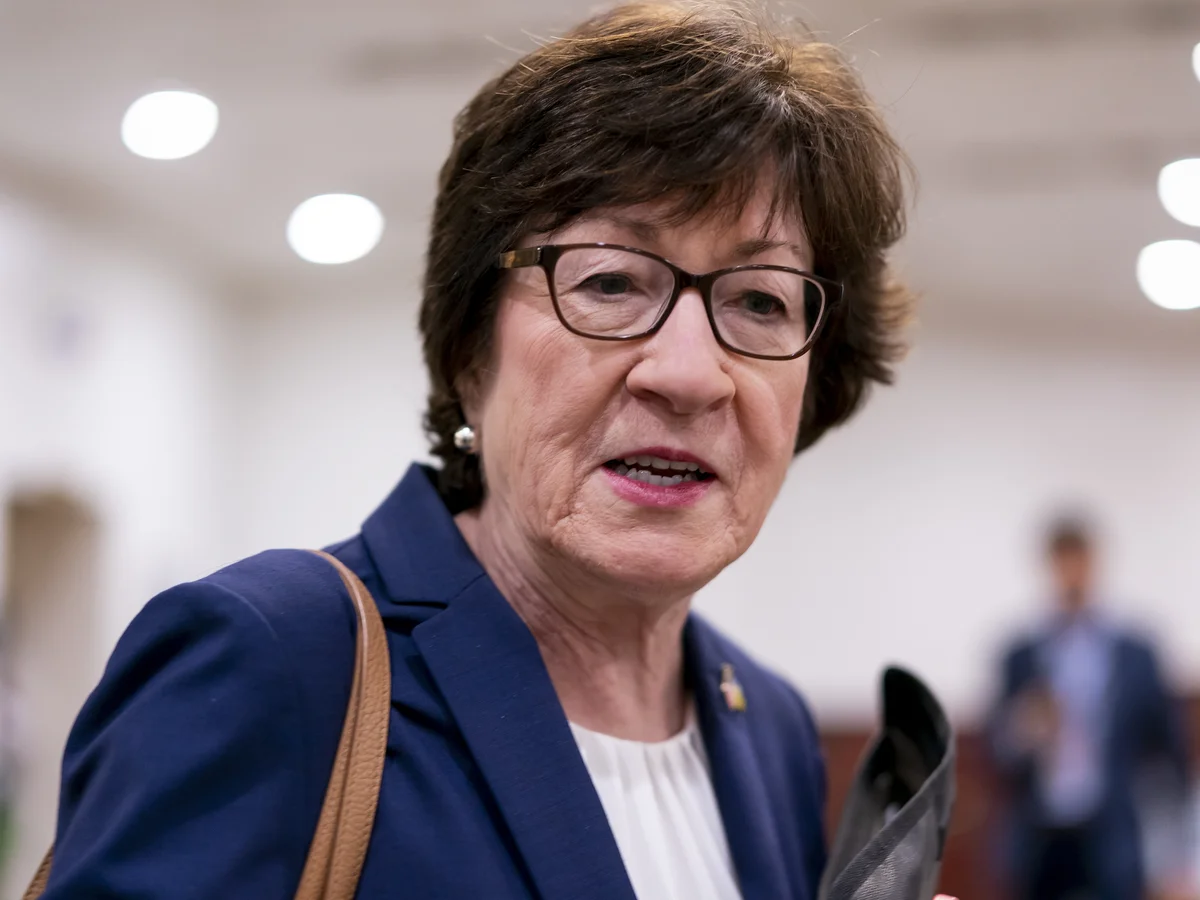In a move that has stirred controversy within Republican circles, Senator Susan Collins (R-Maine) has publicly opposed key elements of President-elect Donald Trump’s Cabinet nomination process, particularly the use of recess appointments to bypass Senate confirmation. Her stance, which aligns with moderate and establishment Republicans, has sparked criticism from Trump supporters who argue that Collins and other “RINO” (Republican In Name Only) senators are undermining the will of the party’s base.
Collins emphasized the Senate’s role in thoroughly vetting nominees, citing the need for background checks, committee reviews, and public hearings. However, her opposition to Trump’s proposed tactics, such as recess appointments, has drawn ire from conservatives who see this as another example of her reluctance to support the President-elect’s agenda.
At the heart of the debate are two of Trump’s high-profile nominees:
- Robert F. Kennedy Jr. for Secretary of Health and Human Services, whose vaccine-critical views have sparked both admiration and concern among lawmakers.
- Dr. Mehmet Oz, nominated to lead the Centers for Medicare and Medicaid Services, a choice that has faced criticism due to Dr. Oz’s history of promoting controversial medical treatments.
Collins, a longtime moderate, has expressed skepticism over these nominees and vowed to scrutinize their qualifications during confirmation hearings. She also opposed using recess appointments to sidestep Senate approval, framing it as a challenge to Senate oversight.
However, this stance has intensified calls for primary challenges against Collins and other moderate Republicans seen as obstructing Trump’s agenda. Many conservatives argue that the Republican base overwhelmingly supports Trump’s leadership and expects senators to stand united behind his nominees.
Trump himself has weighed in on the issue, urging GOP senators to embrace recess appointments if necessary. In a Truth Social post, he declared, “Any Republican Senator seeking the coveted LEADERSHIP position in the United States Senate must agree to Recess Appointments (in the Senate!), without which we will not be able to get people confirmed in a timely manner.”
With tensions mounting, conservative activists are already hinting at plans to heavily primary any Republican senators who side against Trump’s nominees. Collins, who has long been a target for primary challenges due to her moderate voting record, could face renewed opposition from within her own party if she continues to break ranks.
This development highlights the growing divide within the GOP, as the party navigates Trump’s return to the White House. For many in the conservative base, this moment represents a test of loyalty to Trump’s vision for the future of the Republican Party. Whether Collins and other moderates can weather this storm or face political consequences remains to be seen.
Sources:



